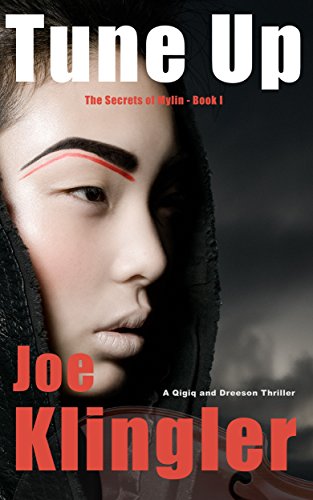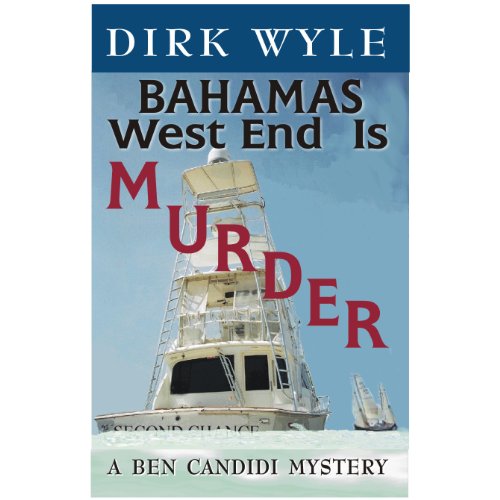

Chapter 1 – Lucky 13
“Sunrise 6:45 a.m., Latitude 27° 39.6, Longitude 79° 0.8, heading for the Little Bahama Bank, 13 miles due south.”
I made the notation in the Diogenes’ log one minute after sunrise. I made it promptly, then pushed aside the hand-held GPS satellite navigation unit and marked the position on our two-by-three-foot chart of the Little Bahama Bank. I had no idea how important the notation would become – one minute later.
My plan was to approach the Little Bahama Bank at a point between the Middle Shoal and the Lilly Sand Bank. I called up the revised course to Rebecca.
We had left the Chesapeake Bay eleven days earlier and were at the end of a difficult November passage. Our tired, sleep-deprived bodies longed for the tranquil waters of the Bahamas – the baha mar or shallow sea, as the Spanish explorers called it. What a pleasure it would be to toss out the hook into the 12-foot water of the protected Bank, hoist up the yellow quarantine flag and sleep all day and night!
Or so we thought.
The weather was cooperating, now. The sky was blue and cloudless. A warm, 10-knot breeze filled our three sails from behind and pushed us along at a respectable five knots. One-foot waves overtook us slowly, lifting our stern gently and nudging us along. Yes, off to the west that virtual river called the Gulf Stream was sweeping northward out of the Straits of Florida. But here, shielded by the Bank, we didn’t have to sail against it. In fact, an eddy current from the Gulf Stream must have been helping us along. The GPS said we were approaching the Bank somewhat faster than the knot meter said we were moving through water.
I was below deck, in the cabin. Since the Diogenes is a 36-foot sailing yacht, tradition allows me to call this space the “main salon,” but it seemed horribly cramped at the time. I was sitting at the dinette table where the charts were laid out. I looked up the companionway or cabin entrance to catch a glimpse of Rebecca. Standing in the open cockpit behind the wheel, my soul mate was looking ahead with helmsman’s concentration. Her straight black hair was pulled back into a ponytail, her usual style when engaged in serious work. Her fine-featured, narrow face was still showing evidence of our rough days in the Atlantic. But a couple of restful days would erase those strain lines from her lovely face. Her yellow foul-weather jacket reminded me of the days and nights of bone-chilling wind and relentless spray that she had endured without complaint. But the wind was warmer now. Her jacket was open and could soon be taken off. In a few minutes, the rising sun would be warming her svelte, athletic body.
Within two hours, I thought, we would be anchored in protected water, enjoying the first day of a two-month, between-jobs, Bahamas vacation.
But that was not to be.
“Cabin cruiser dead ahead.” Rebecca called the information down to me in a helmsman’s style. She has an expressive voice that makes full use of the soprano register. “Approaching at trawling speed. We’ll pass it on the starboard.”
“Well, it’s our lucky sign,” I called back with enthusiasm. “Wave to them for me.”
When Rebecca spoke again, she sounded worried. “Nobody’s waving back, Ben. And it looks real low in the water.”
I came up with binoculars and looked it over: a big cabin cruiser, probably 40 feet long, trawling slowly in the water but with no outrigger poles or fishing lines. Nobody at the high outdoor steering station, the “flying bridge.” And nobody standing in the cockpit, the open area in the back that serves as a platform for fishing. The navigation lights were on, unnecessarily now that the sun was up. And the boat was deep in the water, like it was carrying a heavy load up front. The steady stream of water shooting out the side told me the bilge pump was going full blast. And that could only mean that the boat was taking on water – lots of water.
I felt my throat tighten. “You’re right, Rebecca, it’s sinking.”
I reached through the companionway to the radio attached to the ceiling of the cabin. I grabbed the mike and switched on Channel 16. “Forty-foot cabin cruiser on the northwest end of the Little Bahama Bank, this is the thirty-six-foot, two-masted sailing vessel the Diogenes. You are low in the water and seem to be in distress. Please acknowledge! Over.”
There was no response. We had just passed it, and now I could make out its name on the transom – Second Chance. The name was close to the water and the city of registration was partially submerged. From the tops of the m’s and i’s, we could just make out that it was from Miami. The exhaust ports were submerged; the exhaust was coming up as bubbles and froth. The tub was dangerously low in the water.
“Second Chance, Second Chance, Second Chance! This is the Diogenes. You are in deep distress. We are going to board you.”
No response.
“How are we going to do it?” Rebecca asked, her voice cracking.
And that was exactly what I was asking myself. Our hard-bottomed inflatable was stowed on the deck, upside down between the bow and masthead. It would take too long to untie and launch it.
“We have to do this vessel-to-vessel,” I said. “We’ll take down the sails and motor up. We’ll do it all in one maneuver.”
In one fluid move, Rebecca leaned and reached towards the engine control panel. She pushed the button. The Diogenes’ inboard diesel cranked, then sprang to life. She threw the motor into gear. “Ready into the wind, Ben.”
I answered with a nod.
Rebecca threw over the wheel, the boat turned into the wind, and the big Genoa headsail came flapping inboard. I loosened its halyard and went into a frenzy, pulling down on the fluttering sail while making my way over the inflatable and stuffing canvas between the stainless steel tubes of the bow “pulpit.”
Clambering back to the mast, I pulled down the fluttering main sail and tucked it under the bungie cords strung on the boom. No time for the third sail fluttering behind on the mizzen mast. The stern of the Second Chance was coming up too fast.
Rebecca slowed the engine. “What are you going to do, Ben?”
“Got to find the leak and plug it,” I said, between breaths. “When you get to within ten yards of the boat, slow down, match its speed and inch up. I’ll jump from the bowsprit.”
I started for the bow.
“Ben, use your head!” Rebecca screamed. “Get a life jacket and a lifeline.”
“Okay.”
“And take the hand-held VHF.”
“Good thinking. I’ll call you on Channel Sixteen.” I scrambled down to the cabin, got the stuff and raced back to the pulpit. I tied the hand-held VHF marine radio to the life jacket, put it on, and tied a 12-foot length of shock cord to my waist. Tied the other end to the halyard that raises the Genoa.
“Ten feet and closing,” I yelled. “I’m calling out the distances from the bowsprit.”
The Diogenes’ bowsprit increases the boat’s length by three feet. Besides increasing the sail area and making the boat look more nautical, that pole serves an important function: To its tip is attached the so-called forestay cable that keeps the mast in place. Bang off the bowsprit and your mast will come crashing down.
“Eight feet,” I yelled.
The tip was eight feet away and chopping up and down with two-foot amplitude. The boats were out of sync in the waves.
“Five feet,” I yelled.
I climbed onto the pulpit and inched my way out on the bowsprit, holding the forestay for balance. I checked that my safety line wasn’t hung up somewhere. Rebecca’s face was drawn tight with concentration and concern.
“Four feet,” I yelled back to her.
Four feet ahead and between two and four feet below me, as we bobbed in the waves. The cabin cruiser’s transom was too narrow a target to land on. I’d have to jump over it and land in the open cockpit. Timing myself to the next surge, I leaned forward, curled my toes, and jumped with all my might.
As in a bad dream, I flew over the yacht’s transom and over the length of its cockpit, coming down on my side. I dropped a shoulder and pulled in my head as I rolled. The life jacket absorbed most of the shock and something else took care of the rest – a man’s body.
I pushed away from him fast enough. Something else helped me to my feet. It was the lifeline, tugging at my waist, dragging me back and lifting me as the mast of the Diogenes receded. I untied that line a second before it could drag me overboard.
I turned and took stock of the situation. The man was lying in a small pool of blood in front of the door to the main salon. Lifeless. Nothing my physician fiancée could do for him. I stepped over him, opened the door and looked down on a chaos of floating cushions and sloshing water in the main salon. I pulled the radio to my face and squeezed down on the transmitter button.
“Rebecca. Maintain station at about twenty yards. There’s a dead man aboard. The main salon has two to three feet of water. I’m going below. When you get a chance, take photos that will show how low the boat is in the water.”
“Roger,” she replied, affirming my request.
I threw the bulky life jacket to the floor of the cockpit, descended into the wash, and waded to the indoor steering station. The electric switches on the control panel were less than a foot above water and were getting sloshed periodically by the indoor waves that were running back and forth through the boat. With the voltage indicators showing 13.4, the engine’s alternators were still making electricity. The ammeter told me that the boat was using five amps.
I flipped a toggle switch labeled “bilge pump” and the needle on the ammeter didn’t change.
That was bad news: There was no additional bilge pump, and the one that was working already couldn’t work any faster.
Only one way to save the yacht – find the leak and plug it.
But how to find it? Grope around in the wash? Swim around the outside, looking for holes? No, I would work the problem backwards:
The murderer wanted to scuttle the yacht. The fastest way for him to do that would be to cut a hose leading to a through-the-hull connection.
I waded forward and two steps down to the “head.” The water was up to my chest. I opened the door, took a deep breath, pulled myself down, and groped around the toilet. The salt water flush line was intact, the effluent line was intact, and there was no back-flow through the toilet bowl. Came up for breath and did the same thing around the sink. Everything was intact.
I elbowed my way out of the head and waded back to the kitchenette near the companionway and did the same thing for the sink. Everything intact. Hell! Only one place left to look for a severed hose – in the engine room. The access door was halfway submerged near the companionway steps. It opened to reveal a pair of diesel engines, submerged almost to the top of their fan belts. Movement of the belts and wheels frothed the water before me and sprayed the ceiling of the squat compartment. But it was amazingly quiet. Immersion in water had decreased the engine noise – and was threatening to drown the engines, too. Every few seconds one of them slowed and shuddered. Their air intakes were just a few inches above the average water level and were getting splashed regularly. The engines were choking like a couple of caged lions in a sinking Roman galley. And by opening the door I was letting waves roll into the compartment, making things worse.
Probing carefully in the froth, I found the raw water hoses and ran my fingers along them as far back as possible, turning my head to avoid the fan belts. To trace the hoses the rest of the way, I crawled over the motors, taking care to stay away from the alternators and whirling belts. Followed the hoses all the way down to their seacocks. Everything was intact. Found one spare seacock, and it was closed.
Damn. No leak to be found in the engine room. Where was it, then?
I climbed back over the engines and back into the main salon. Closed the door and returned to the cockpit where the hand-held radio was squawking a hailing message from Rebecca. I squeezed down on the transmitter button. “Rebecca, I’m having trouble finding the leak.”
“Where have you been?” Her naturally high voice rose to a horrified screech. “You haven’t responded to page for ten minutes.” Under pressure, she was reverting to hospital jargon.
“I was in the engine compartment. The water was too high to take along the radio.”
“In the engine compartment?”
No time to tell her the whole story. “Can’t find any torn hoses or open seacocks. The bad guys must have made a hole somewhere. I’m going to inspect the hull.”
“Don’t go over the side. I forbid you!” She screamed it so loud that I heard her voice through the air.
“Okay, then I’ll have to inspect it from the inside. Over.”
“Diogenes standing by.”
I climbed back into the main salon and felt my way along every submerged section of the hull I could lay hands on, cursing the boat maker for leaving all those sharp fiberglass spines on the unfinished surfaces. One of the engines was sputtering badly. After 10 minutes of groping, my bloodied hands found the leak. It was on the port side, in a compartment under a bench near the dinette table. Water was welling up through the compartment like a Florida spring. And in the subdued light under the table, the compartment was filled with a light-blue glow. I dunked my face and saw it better: one hand-sized hole, and three finger-sized holes, all aglow in ocean blue. Viewing it from inside that black box with water streaming past my face, the ocean seemed unstoppable and infinitely deep.
The weak engine sputtered again and almost died.
I staggered to the galley, tore open a drawer, and found what I needed – a steak knife. Grabbed one of the floating cushions, ripped it open, and cut off a big piece of foam. I rolled it tight and stuffed it down the compartment, wedging it in as best I could. Held my breath and moved my hands around inside the compartment, testing for flow. My patch was working. Must have slowed the leak down to one-third.
The sick engine was getting sicker. Nothing I could do for it; opening the engine room door might let in a wave that would kill it. I thought about increasing the revs, but that might dig in the stern and drown it for sure. What was keeping the stern afloat, anyway, with those heavy engines in back?
Nothing to do but pray. No, too early for that. Nothing to do but be objective.
With the knife, I slashed marks on the wall along the waterline. I started the timer function on my watch. Time and water level were two things I could measure objectively. I went topside and leaned over the port rail to check the bilge pump output. It was still fighting, putting out a steady stream of water.
The sick engine’s cough was starting to sound healthier. I waved to Rebecca, giving her thumbs up. She waved back.
I knelt down to inspect the crime scene: one tall, heavy-boned, muscular man lying facedown in a small pool of blood. This time I noticed the gunshot wound in the back of his head, obscured by his thick blond hair. I rolled him at the shoulder and found what I expected: a gunshot wound in the chest. His muscular arms were lightly tanned, like you might expect for a weekend boater with a desk job. His face and neck were red, from sunburn. He was probably handsome before, with that broad forehead and those widely spaced eyes. Now they were glazed over and bulging from their sockets.
With both engines sounding a lot better now, I turned my attention to the proximate cause of death. It wasn’t a full bleed-out, so the chest shot must have stopped his heart. During the six years that I had worked as a lab tech with the Miami-Dade County Medical Examiner’s office, I learned a thing or two about cause of death. And after three years spent in a pharmacology Ph.D. program, I’d learned a lot of systemic physiology. And Rebecca is always teaching me something new about medicine.
Something was under the man’s stomach. Rolling him at the hips, I pulled out a pair of night vision goggles. Lifting them carefully and putting them up to my face, I saw a solid wall of eerie green. They were still on – maxed out by the daylight. I clicked off the switch and put them down.
I gave Rebecca another thumbs up and climbed the ladder to the open steering station on the roof of the cabin – the flying bridge or “flybridge,” as it is usually called. On the floor I noticed more blood. The victim had received the chest shot up there. Then he had fallen to the deck where his assailant delivered the coup de grâce.
The flybridge had a control panel just like below. The gauges said that the alternators were still making electricity. The tachometers said the revs were around 800. The readings on the oil pressure gauges were about right. The knot meter registered about two knots. The autopilot was engaged and holding the course straight.
Now for the big question: Were we still sinking?
I went back to the main salon and checked the water level against my marks. The bilge pumps had dropped the water level six inches. I checked the timer function on my watch. Only three minutes had elapsed. That was strange because it felt like so much longer. I waited another minute and checked again. Yes, the bilge pumps were dropping the water level two inches a minute. The situation was under control.
I picked up the radio on the way to the flybridge. After taking a look around, I squeezed down on the transmitter button. “Candidi to Diogenes. Switch to Channel Thirteen.”
Channel 13 is used for short-range conversations with bridge keepers. On our equipment, Channel 13 was set to transmit with only one watt of power – enough power for close-in conversations and impossible to hear several miles away.
“Diogenes to Candidi, over to Thirteen,” answered Rebecca.
She made the switch and said, “Diogenes on Thirteen. Sounds like a serious situation. Go ahead, please.” She sounded real professional.
“I can rescue the boat, but that’s all I can rescue.”
“I copy that,” Rebecca answered, affirming that she heard and understood my message. “I guessed that, too.”
“Let’s scan the horizon for other boats.”
Extending a dozen feet over the flybridge was a “tuna tower,” a framework of aluminum tubes that come together to form a platform and lookout station. The elevation of the tuna tower provides a definite advantage in locating fast-moving schools of those fish. The elevation also offers an advantage in locating boats that might be just below the horizon.
I climbed the tuna tower and did a 360-degree sweep with the naked eye. No boats in view. One hundred yards astern, Rebecca was doing the same thing, using binoculars.
Climbing down, I noticed that the yacht had a cylindrical radar antenna. The unit had a small display mounted on the flybridge control panel. The radar was on and the screen was showing two big green splotches. The one in the center was the Diogenes’ radar reflector and the one at the bottom of the display must have been the water tower that marked our destination, the town of West End. And the scope was showing a lot of little blips that couldn’t have been boats. It was showing a lot of so-called false returns. The signal amplification was turned up too high.
My hand-held radio was amplifying a lot of static, too. But Rebecca killed it with her carrier signal when she squeezed down on the transmitter button. She waited a second or two before speaking. “No boats on the horizon, Ben.”
“Good. That’s just as well. Good guys can’t do anything to help, and I don’t want the bad guys to hear.” I told her what I’d seen and done. “You didn’t broadcast any distress signals, did you?”
“No. The only information that went out on Channel Sixteen was what you said about the dead man on board. Then we talked about the leak. What are we going to do, Ben?”
“Bring this smudge pot to the marina at West End, Grand Bahama Island, and call the police.”
“Maybe we could use our cellphones?”
“You can try, but I don’t think they will work. When we left Washington I didn’t request activation for the Bahamas. And the Florida coast is too far away to get reception.”
The Florida coast was about 70 miles west of us.
“I’ll try them anyway.”
“Okay. If you get the Bahamian police, be sure to tell them that we found the boat in International Waters and that we are going to file a salvage claim in Miami. That’s where this boat is home ported.”
“Hold on and I’ll try right now,” Rebecca said. I listened to static for a few minutes while she went below to get her cellphone. Then she came back on and said, “You were right, Ben. I can’t get any signal.”
“Did you take the photos?”
“Yes. They’ll show it sinking. I also did a work-up in our log.”
I love Rebecca’s physician lingo.
“Great. Could you go below and find my cordless drill, a screwdriver and a collection of screws? Self-tapping would be best. When you get them, come along side and toss the stuff over to me. If all goes well, I’ll have the boat pumped dry in another twenty minutes. But before we turn around and get underway, I want to put on a patch with solid backing.”
“Sure, I’ll get your tools. I’ll also give you a fever thermometer for a time-of-death estimate.”
“Good thinking.”
“Roger. You’ll have your tools in a few minutes. What do you want me to do after that?”
“I’d like you to take a look at the chart on the table. Figure a course around the ‘MS’ marker – the course should be about two-seven-zero – and then down along the western edge of the Little Bahama Bank.”
“You don’t want to go straight south and over the Bank?”
“It’s too complicated when each of us has a boat to steer. And too difficult to eyeball. Too many shallow ‘sand bores’ and ‘fish muds’ to watch out for. And the eastside approach to West End is a tricky channel. No, I want to take it on the outside, along the west edge of the Bank.”
“But we’ll have to fight the Gulf Stream.”
“We’ll hug the edge of the Bank where the water’s about forty feet deep and there won’t be much problem. The bottom contours are fairly regular. Use the depth sounder as your guide. I’d like us to make seven knots. Once we get level with Grand Bahama Island, we just turn ninety degrees to the left and head into West End.”
“Roger that. Are we going to keep our radio transmissions like this, all the way?”
“Roger. I’ll put out the word to West End just before we pull in there. That way it will be too late for the bad guys to do anything.”
“Okay, Ben. Stand by for your tools in about five minutes.”
I went below and made another three-minute mark on the wall. Spent some time picking floating debris out of the water so the pump would have less chance of getting fouled. There was so little debris that I wondered if the boat had been lived in. And no marijuana or cocaine floating around. No paper money, either. The lowering water revealed no more corpses and not much paraphernalia, except for an old radio direction finder dish and a hand-held radio, both waterlogged.
The front face of the main salon was dominated by a large, clear, slanted window that gave good visibility for the indoor piloting station. The sides also had large expanses of tinted glass. When I noticed the Diogenes pulling alongside, I went to the cockpit to receive the tools. Rebecca threw them over in an inflated, knotted garbage bag. She’d wrapped the things in a clean white sheet, which I could use to cover the corpse when the time came. She’d also included two sandwiches, an apple, a plastic bottle of water, paper napkins, my hat, my Polaroid sunglasses, and a tube of sunscreen lotion. That girl thinks of everything.
It took the pump 22 minutes to clear out all the water. After it did, it shut off and was able to stay off most of the time. By opening an access hatch in the floor, I was able to verify that it was a single pump, operated by a float switch.
My jammed-in rubber foam plug was doing a good job at two knots, but a more robust one would be needed for travel at seven knots. I selected another cushion and cut up a new piece of foam for the sturdier design I had in mind. Went to the head and removed the toilet seat cover to use as a solid backing. Before starting, I laid out all the tools on the bench. Got a face full of water while pulling out the old plug and inserting the new one. But the foam rubber made an excellent fit and the four screws held the plastic backing tightly to the hull. They were easy to screw in, once I drilled the tap holes.
With that done, I opened the door to the engine compartment to find the two lions roaring loudly. I removed the oil caps and made a quick inspection of the innards of those diesel, overhead-valve engines. Flowing over the rockers and tappets was a stream of hot, clean-smelling, yellow oil. No milky emulsion of oil and seawater like I’d been worrying about. Good. The Second Chance would return to port under its own power. The alternators were looking healthy, but I didn’t want them crudding up with salt as they dried out. I went to the sink in the galley, got a pan of fresh water, and splashed them down.
Taking the victim’s temperature required loosening his pants for anal insertion of the fever thermometer. While waiting for it to come to equilibrium, I noticed a light pattern of finely divided blood spatter on the cabin door. Studying it for a couple of minutes, I saw that it fit perfectly with an executioner’s shot to the head.
I called in the temperature to Rebecca.
“Good, Ben. I’m writing it down. Check his jaw and appendages for stiffness.”
“Jaw is not movable. Arm is very hard to move.”
“Good. My preliminary estimate is that the death was about eight hours ago. But please check the temperature every half hour. That will improve our estimate. You can check for stiffness again, in another hour – on another limb.”
“Roger that. You can change course whenever you are ready. Put on seven knots as soon as I fall in behind.”
I went to the flybridge and made careful note of several things. Most important was the yacht’s course on autopilot. It was 35° (northeast by north). Next was the RPM on the engines (unchanged) and our speed in the water, which was now 2.9 knots. Riding higher in the water, the yacht was now moving 0.9 knots faster than before. I punched out the autopilot, then changed the course and speeded up to fall in behind Rebecca. The patch held well at seven knots.
Leaning back in the captain’s seat, I congratulated myself for rescuing a valuable yacht and performing a crime scene investigation to professional standards. As I sat there, steering the boat’s wheel at one spoke using a paper napkin as a glove, my body slowly came down from an adrenaline high. But my brain didn’t relax. How lucky that the boat was 13 miles out when we discovered it. That put it in International Waters, one mile outside the Twelve Mile Limit. My brain was running all over the place, trying to remember facts about salvage law, estimating the value of the yacht, and calculating how big a salvage fee I could claim.
Luckily my free hand didn’t fumble around much during that brainstorm. When my eyes settled on the seat next to me, they made a shocking discovery: Lying in the crack of that seat was a long-barreled revolver – cocked and pointed at me.
Chapter 2 – A Good Citizen’s Duty
I punched in the autopilot and used the paper napkin to pick up the gun and let back its hammer. It didn’t smell like it had been fired, and all the visible chambers were loaded. Maybe the victim was an unlucky hunter who was killed before he could get off his first shot. I put the revolver in a drink holder under the console and went back to the routine: steering, thinking, and taking rectal temperatures on schedule.
It took an hour for the “MS” marker to come into view and another hour to round it and start heading south along the western edge of the Little Bahama Bank. Off to the right, the Gulf Stream water was as blue as the sky above us. And 20 to 40 feet below me, the bottom glided by – a patch of grass here, a patch of sand there, punctuated by chimney-shaped sponges and brain corals ranging in size from a picnic table to a VW bug. Occasionally I could make out a snapper, a yellowtail or a brightly colored reef fish. My Polaroid sunglasses did such a good job of blocking surface reflection that the water seemed to have no surface at all. It felt like flying over a landscape of green, beige, red, brown and blue hills and valleys, which rose gently to our left to meet a silvery horizon.
The bottom contours were so regular that Rebecca needed few adjustments to our average course of 165°. Here on the edge of the Bank, the Gulf Stream wasn’t fighting us more than one knot.
With little to do but follow Rebecca, I spent the time thinking about the crime we’d discovered. Why does a man go trawling at 2.9 knots at night without fishing line but with night vision goggles and a cocked revolver? Was it a drug deal gone bad? Was he the buyer or the seller? Was the revolver his only armament? Why hadn’t he taken a rapid-fire weapon? Was he doing the deal alone? Did he have a partner or sidekick? If the sidekick was the one who did it, how had he gotten off the boat? The stern didn’t have any davits for hanging a dinghy or inflatable boat behind. My inspection of the front deck didn’t reveal any shackles, straps or tie-downs for an inflatable, either. And why would the murderous sidekick take the chance of lining up the shot for the front of the chest when it is so much safer to shoot a guy from behind?
Well, when the police identified the victim and his boat and started interviewing people, they should be able to test the murderous sidekick theory for us. Correction: They would check it for themselves because Rebecca and I weren’t going to get involved.
The alternate theory would be that the victim was out alone and was attacked by a boat full of bad guys. They pulled up to him, knocked him down with a chest shot and sent one man aboard to deliver the executioner’s shot. The fact that they’d chosen to sink the boat with a tight pattern of shots at the waterline said many things about them. Either they were stupid, or they didn’t know much about boats, or they were in a big hurry.
Hell, if I’d wanted to scuttle this yacht and make it look like an accident, I would have laid a wrench on the bilge pump float switch so it couldn’t turn on, and I’d loosen the aviation clamp on one of the raw water hoses and pull off the hose. That would take the boat down in 15 minutes. Barracuda and shark would scatter the body parts and nobody would know that a crime was committed.
I went back to speculating about the victim’s intentions until Rebecca asked for another temperature reading for the time of death calculation. That got me wondering whether it would be possible to deduce the time of the attack from how long it took for the yacht to flood to the level we found. The principles were simple – a race between the leak and the pump. The pump has only two speeds: off and full speed. If the leak were slower than the pump there would have been no problem. The pump would click on when the water rose an inch or two, and would click off when it had pumped it back down. And the water would never rise above the bilge.
If the leak is faster than the pump, the boat will sink. If the leak is a lot faster, the boat will sink in a short time. If the leak is only a little bit faster, the boat will take a long time to sink.
I spent some time thinking about how I could use calculus to compute how long the race had been going on. Then I thought up a simple experiment that I could do, once we got the Second Chance to safety.
While eating the lunch that Rebecca made for me, my thoughts returned to the other calculation I had made:
We were going to earn $100,000!
The calculation was easy. This smudge pot had to be worth around $200,000. A salvager who saves a boat from going down can claim 50 percent of its value. Now $100,000 would be a nice chunk of change – enough to keep this biomedical scientist and his physician fiancée going for a couple of years. Between jobs, as we were, we could use the money. I had given up my job at the U.S. Patent and Trademark Office and Rebecca had given up her fellowship in world health at George Washington University.
Actually, I’d given up the Patent Office job a couple of months earlier and had accepted a research assistant professorship at Bryan Medical School in Miami. After I’d worked hard there to start a career in laboratory research, the effort sort of exploded in my face. But that’s another story. After the dust settled, we sailed out of Chesapeake Bay, planning to take a two-month vacation cruising the Bahamas before looking for work in Miami. My long-range goal was to build up a pharmaceutical consulting practice. Rebecca’s plan was to find a job in an emergency room or to do family medicine in a small group practice. Her true passion, third world medicine, she would pursue in her spare time.
My black-haired, green-eyed soul mate called me on Channel 13 for another temperature reading. After giving it to her, I praised her piloting and her corned-beef sandwiches. She reminded me to put sunscreen lotion on my face and neck. I thanked her for thinking of me and keeping me on track.
I meant it sincerely. That slender, Manhattan-bred lady was the best thing that ever happened to this mid-sized, oversexed New Jersey Italian. Several years ago, she had rescued me from a downward spiral toward the life of a boat bum. She had shown me how to get useful work out of my high-voltage brainstorms. And, in appreciation, I had shown her a kind of love that she’d never experienced before. And now, with Rebecca in her late twenties and with me in my early thirties, we were lifetime partners.
Once we completed this salvage, our partnership was going to be $100,000 richer.
Of course big chunks of cheese invariably attract nibblers. It would be a shame to have to spend any of that money on a Bahamian lawyer. But I might need one if Bahamian bureaucracy asserted authority over the yacht. The best way to avoid pests is to leave nothing that will attract them in the first place. I spent some time formulating oral statements that I would make to the Bahamian police and customs officials. I worked them up as a half dozen sound bites that would reveal me as an expert on maritime law who would stoutly defend his rights:
“Were it not for the dead man on board and the need to bring the crime to the immediate attention of the nearest police authority, we would have taken the salvaged yacht directly to its home port of Miami.”
I practiced laying in a respectful pause and viewing the official with a diffuse gaze.
“It is, of course, unnecessary to say that the Bahamian Government has no jurisdiction over my salvage claim.”
I practiced waiting him out until he backed down. And I practiced a response if he turned argumentative.
“Of course I would be glad to render a written statement to that effect, if I were furnished with the name, title and address of the responsible official on the Bahamian side.”
I practiced those sound bites until they rolled off my lips with ease. Eventually I stopped pacing. I sat down and went back to thinking.
Maybe I didn’t really have to deal with Bahamian authority. Palm Beach was only 60 miles to the west. The rubber foam on my patch was fluttering, but it was holding well. The bilge pump was clicking on only once every 10 minutes. The engines were doing fine and the gauges said we had plenty of fuel. We could make the Port of Palm Beach in about 11 hours. We could hand the murder investigation over to the Palm Beach Sheriffs Department. They would investigate the murder professionally.
Or would Palm Beach complain that my actions had caused an intolerable delay? Would they accuse me of obstructing justice? West End was only four hours away. Maybe International Law actually required us to go to the nearest port with police authority, even if the crime was committed in International Waters.















 Loading
Loading












